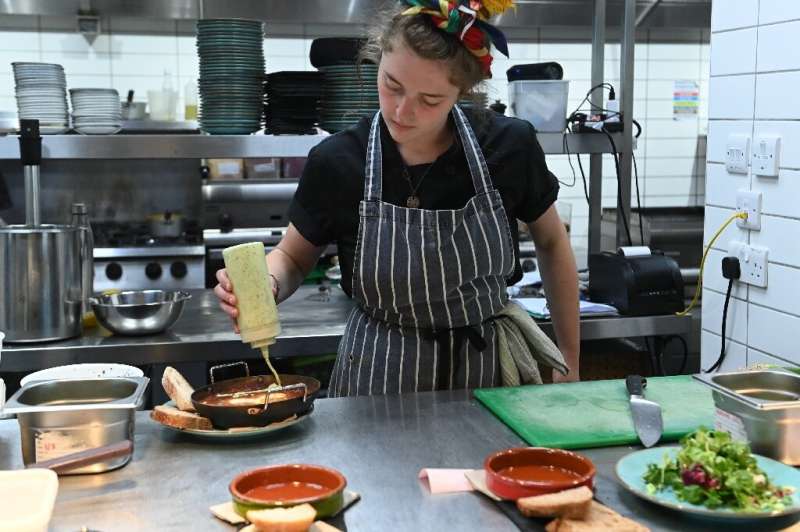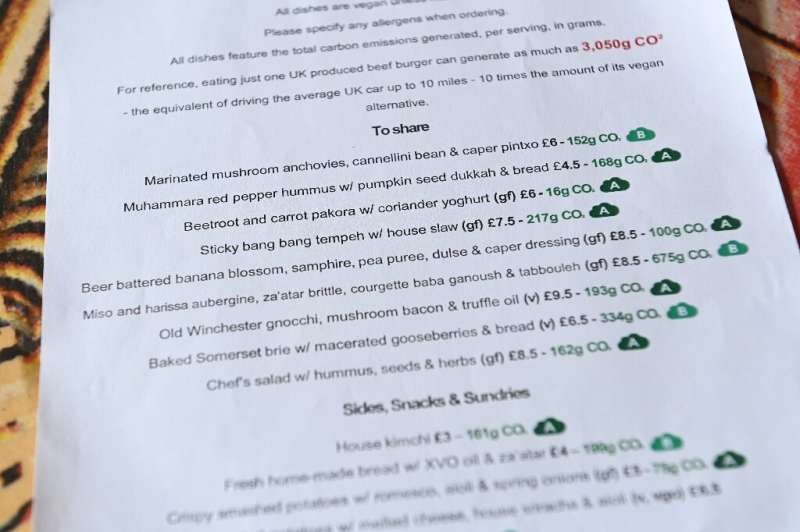Nebraska woman charged with helping daughter have abortion

FILE - Protesters line the street around the front of the Nebraska State Capitol during an Abortion Rights Rally held on July 4, 2022, in Lincoln, Neb. A Nebraska woman has been charged in early June with helping her teenage daughter end her pregnancy at about 24 weeks after investigators uncovered Facebook messages in which the two discussed using medication to induce an abortion and plans to burn the fetus afterward.
JOSH FUNK
Tue, August 9, 2022
OMAHA, Nebraska (AP) — A Nebraska woman has been charged with helping her teenage daughter end her pregnancy at about 24 weeks after investigators uncovered Facebook messages in which the two discussed using medication to induce an abortion and plans to burn the fetus afterward.
The prosecutor handling the case said it's the first time he has charged anyone for illegally performing an abortion after 20 weeks, a restriction that was passed in 2010. Before the U.S. Supreme Court overturned Roe v. Wade in June, states weren’t allowed to enforce abortion bans until the point at which a fetus is considered viable outside the womb, at roughly 24 weeks.
In one of the Facebook messages, Jessica Burgess, 41, tells her then 17-year-old daughter that she has obtained abortion pills for her and gives her instructions on how to take them to end the pregnancy.
The daughter, meanwhile, “talks about how she can’t wait to get the ‘thing’ out of her body," a detective wrote in court documents. “I will finally be able to wear jeans,” she says in one of the messages. Law enforcement authorities obtained the messages with a search warrant, and detailed some of them in court documents.
In early June, the mother and daughter were only charged with a single felony for removing, concealing or abandoning a body, and two misdemeanors: concealing the death of another person and false reporting. It wasn't until about a month later, after investigators reviewed the private Facebook messages, that they added the felony abortion-related charges against the mother. The daughter, who is now 18, is being charged as an adult at prosecutors' request.
Burgess' attorney didn’t immediately respond to a message Tuesday, and the public defender representing the daughter declined to comment.
When first interviewed, the two told investigators that the teen had unexpectedly given birth to a stillborn baby in the shower in the early morning hours of April 22. They said they put the fetus in a bag, placed it in a box in the back of their van, and later drove several miles north of town, where they buried the body with the help of a 22-year-old man.
The man, whom The Associated Press is not identifying because he has only been charged with a misdemeanor, has pleaded no contest to helping bury the fetus on rural land his parents own north of Norfolk in northeast Nebraska. He's set to be sentenced later this month.
In court documents, the detective said the fetus showed signs of “thermal wounds” and that the man told investigators the mother and daughter did burn it. He also wrote that the daughter confirmed in the Facebook exchange with her mother that the two would “burn the evidence afterward." Based on medical records, the fetus was more than 23 weeks old, the detective wrote.
Burgess later admitted to investigators to buying the abortion pills “for the purpose of instigating a miscarriage.”
At first, both mother and daughter said they didn’t remember the date when the stillbirth happened, but according to the detective, the daughter later confirmed the date by consulting her Facebook messages. After that he sought the warrant, he said.
Madison County Attorney Joseph Smith told the Lincoln Journal Star that he’s never filed charges like this related to performing an abortion illegally in his 32 years as the county prosecutor. He didn't immediately respond to a message from the AP on Tuesday.
The group National Advocates for Pregnant Women, which supports abortion rights, found 1,331 arrests or detentions of women for crimes related to their pregnancy from 2006 to 2020.
In addition to its current 20-week abortion ban, Nebraska tried — but failed — earlier this year to pass a so-called trigger law that would have banned all abortions when the U.S. Supreme Court overturned Roe v. Wade.
A Facebook spokesman declined to talk about the details of this case, but the company has said that officials at the social media giant “always scrutinize every government request we receive to make sure it is legally valid.”
Facebook says it will fight back against requests that it thinks are invalid or too broad, but the company said it gave investigators information in about 88% of the 59,996 times when the government requested data in the second half of last year.

Jim Wilson
Kevin Collier and Minyvonne Burke
Tue, August 9, 2022
Facebook turned over the chats of a mother and her daughter to Nebraska police after they were served with a warrant as part of an investigation into an illegal abortion, court documents show.
The investigation, which was launched in April before the Supreme Court overturned Roe v. Wade, is one of the few known instances of Facebook’s turning over information to help law enforcement officials pursue an abortion case — but it is also an example of a scenario that abortion rights experts have warned will be more common as all abortions becomes illegal in many states.
Madison County prosecutors say Jessica Burgess, 41, acquired and gave abortion pills to her daughter, Celeste, who was 17 at the time, and then helped her bury and then rebury the fetus. The Norfolk Daily News first reported the case. The two were charged last month and have pleaded not guilty. A lawyer for the two women didn’t respond to a request for comment.
According to a sworn affidavit from Detective Ben McBride of the Norfolk Police Investigations Unit, police started with a tip from a woman who described herself as a friend of Celeste’s who said she saw her take the first pill in April.
Under a Nebraska law enacted before Roe was overturned, abortion is illegal 20 weeks after an egg is fertilized. According to McBride’s affidavit, Burgess had a miscarriage when she was around 23 weeks pregnant, soon after having taken abortion pills.
McBride then applied for and got a warrant in June for access into the digital lives of the mother and her daughter, seizing six smartphones and seven laptops and compelling Facebook to turn over chats between them.
The alleged chats, published in court documents seen by NBC News, show a user named Jessica telling a user named Celeste about “What i ordered last month” and instructing her to take two pills 24 hours apart.
Norfolk police didn’t respond to a request for comment.
Facebook stores most user information in plaintext on its servers, meaning the company can access it if it is compelled to do so with a warrant. The company routinely complies with law enforcement requests.
Facebook didn’t respond to a request for comment for this article.
Facebook Messenger offers end-to-end encryption, meaning chats between two users will be visible only on users’ phones and aren’t readable by Facebook or any government entity that makes a legal request to the company. But the option is available only to people using the Messenger app on mobile devices, and messages are encrypted only after users select the option to mark chats as “secret.”
“I know from prior training and experience, and conversations with other seasoned criminal investigators, that people involved in criminal activity frequently have conversations regarding their criminal activities through various social networking sites, i.e. Facebook,” McBride said in his warrant application.
Prosecutors charged Jessica Burgess with three felonies and two misdemeanors and Celeste Burgess with a felony and two misdemeanors. All charges were related to performing an abortion, concealing a body and providing false information.
Elizabeth Nash, a state policy analyst at the Guttmacher Institute, a nonprofit group that advocates for reproductive rights policy, said the Supreme Court’s decision in Dobbs v. Jackson Women’s Health Organization in June to overturn Roe v. Wade most likely didn’t change Nebraska law enforcement’s legal ability to bring the charges, as the state hasn’t changed its law since then and the case began in April.
But it’s the type of case abortion law experts expect to see more of in a post-Roe world, she said.
“The police could have decided not to charge them, but it looks like the police are throwing the book at the mother and daughter, charging them with everything from criminal abortion to false reporting,” Nash said. “This is the kind of response we are expecting to the Dobbs decision and states’ banning abortion.”
Jake Laperruque, the deputy director of surveillance at the Center of Democracy and Technology, a think tank that promotes digital rights, said tech companies that store plaintext information about users who intend to have abortions are likely to continue to be served warrants as more states prosecute abortion-related crimes.
“This is going to keep happening to tech companies that store significant amounts of communications and data,” Laperruque said.
“If companies don’t want to end up repeatedly handing over data for abortion investigations, they need to rethink their practices on data collection, storage and encryption,” he said.
This story first appeared on NBCNews.com.



















